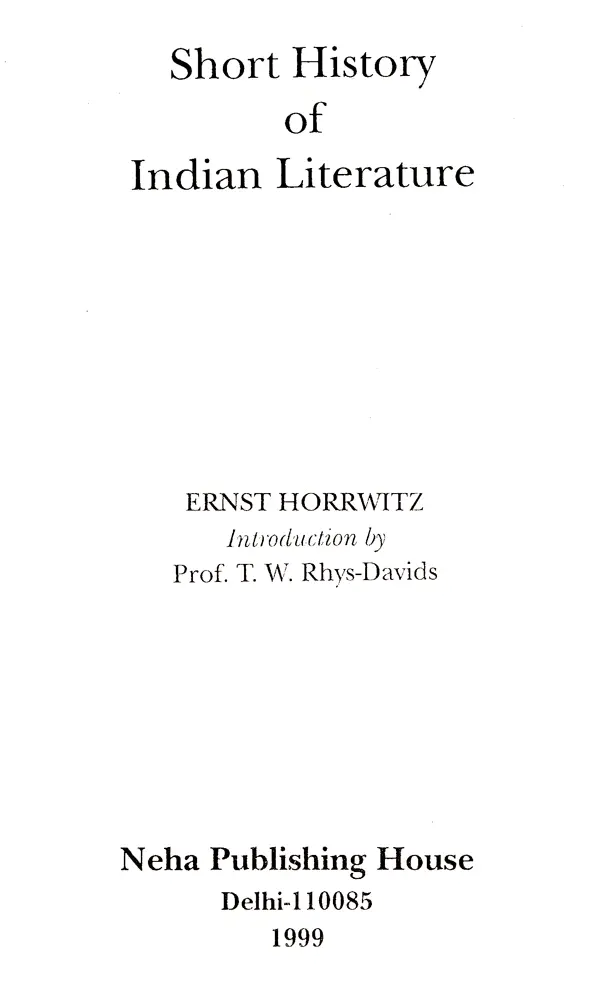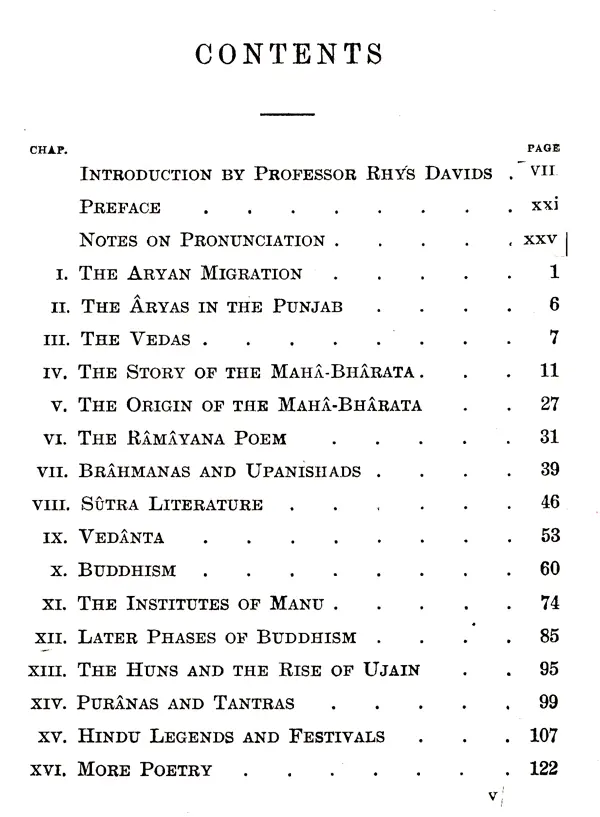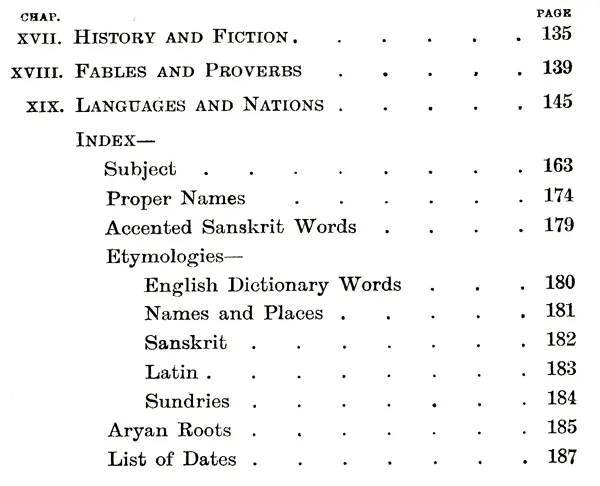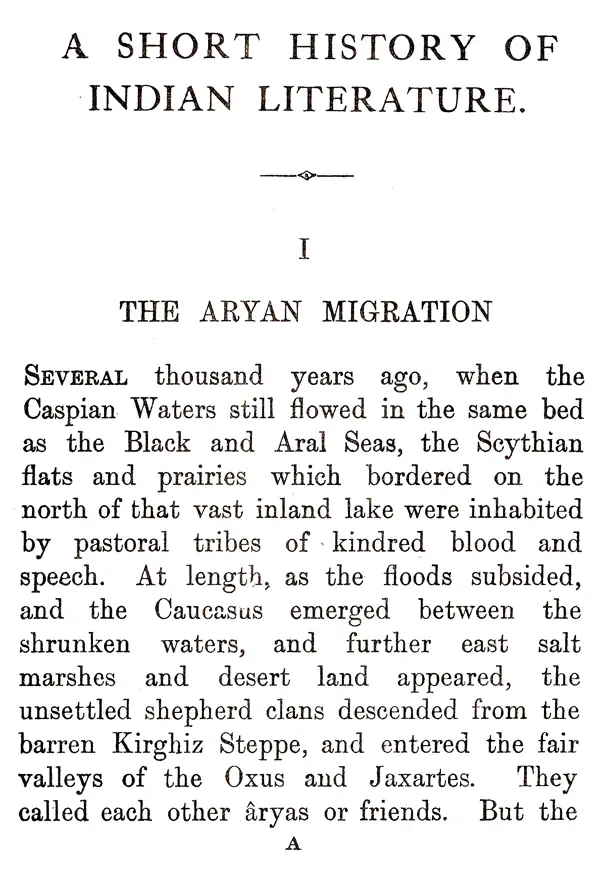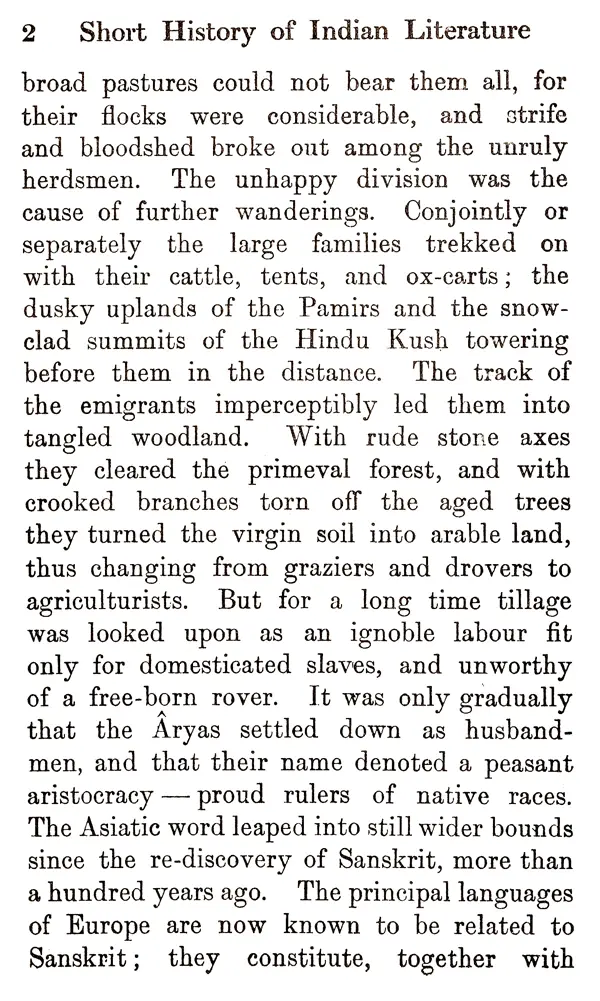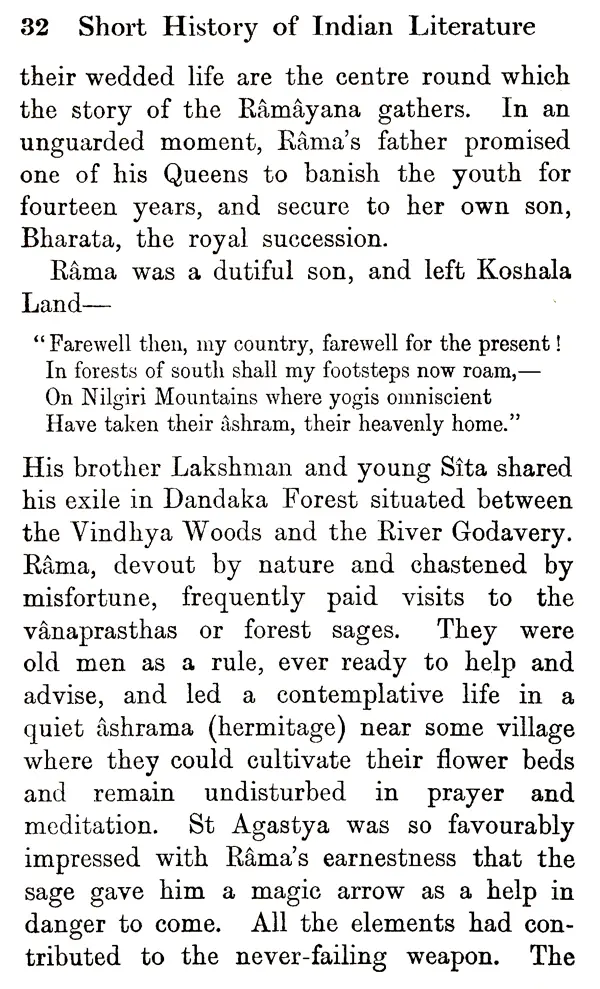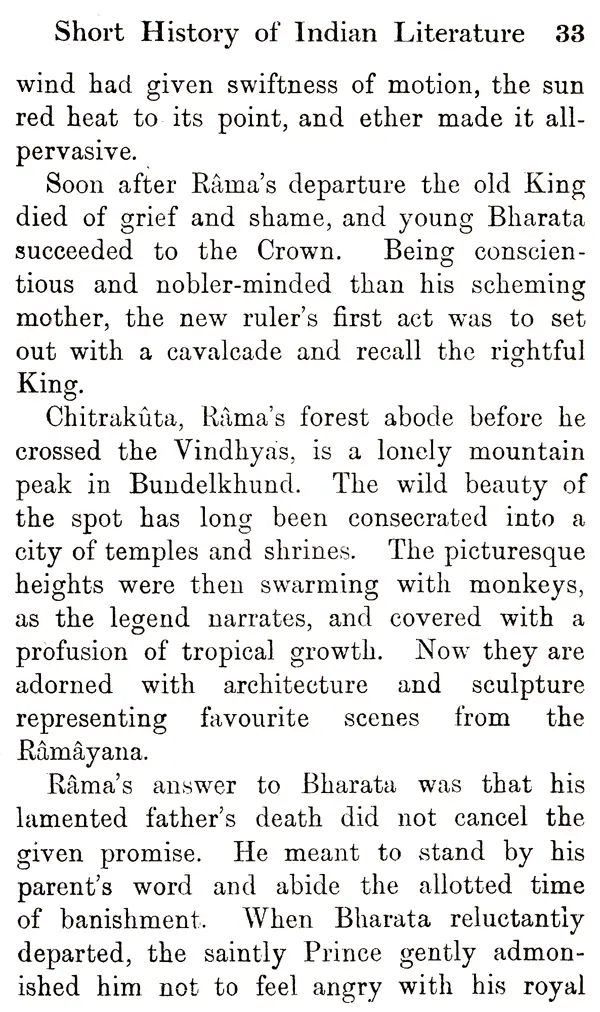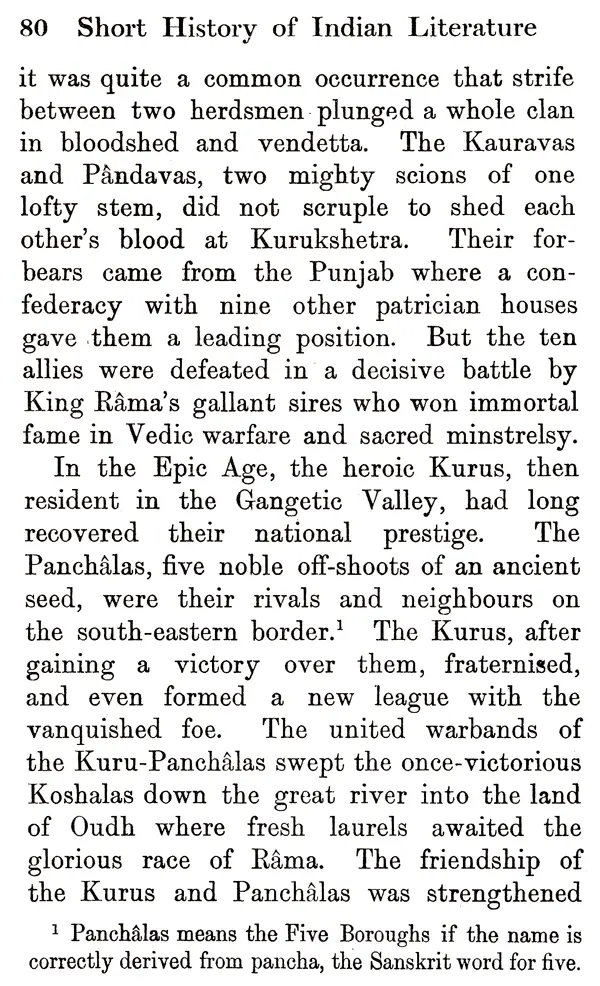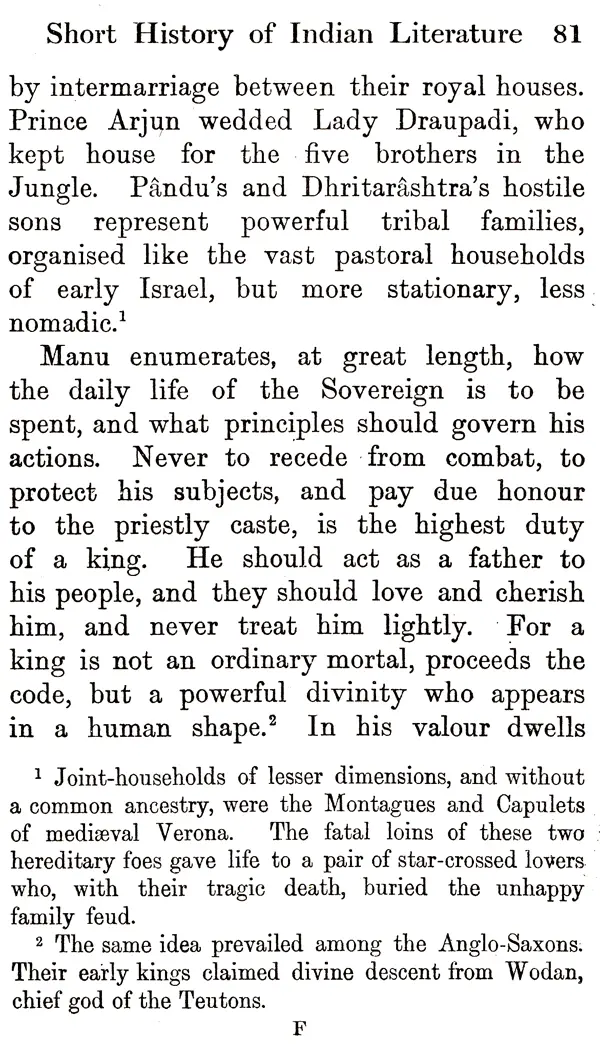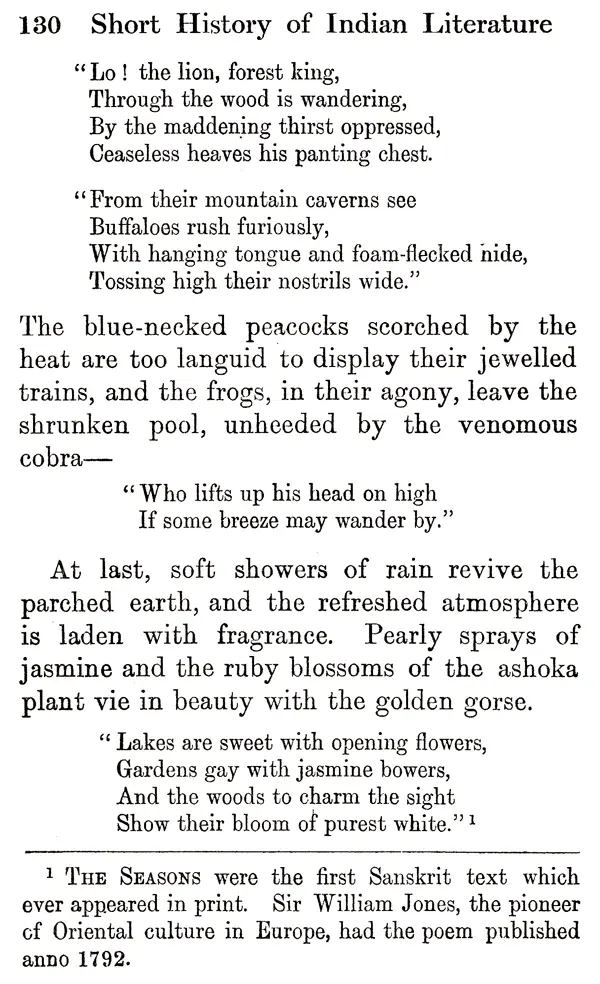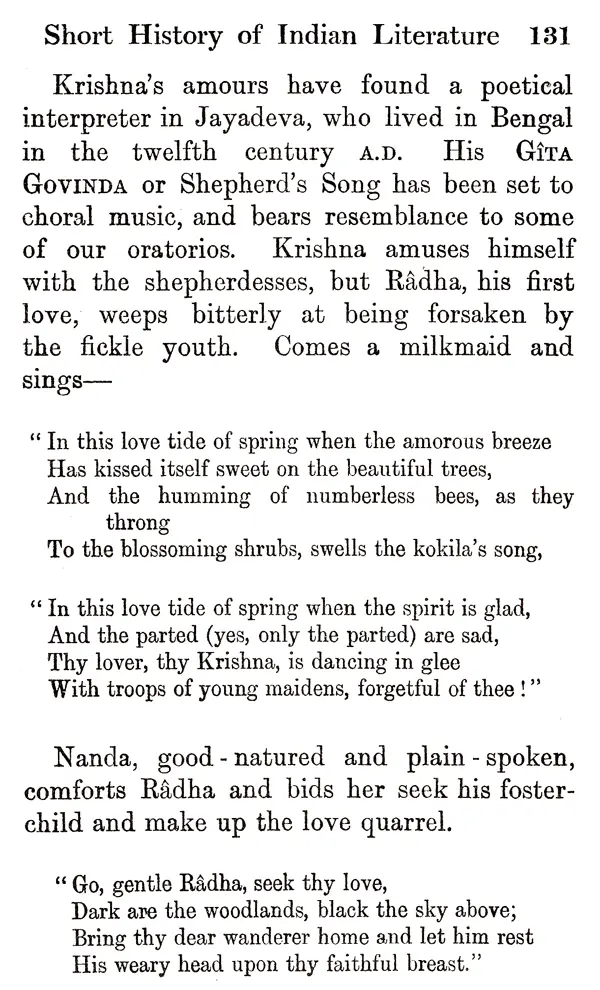
Short History of Indian Literature
Book Specification
| Item Code: | UAG273 |
| Author: | Ernst Horrwitz |
| Publisher: | Sharada Publishing House, Delhi |
| Language: | English |
| Edition: | 1999 |
| Pages: | 188 |
| Cover: | HARDCOVER |
| Other Details | 9.00 X 6.00 inch |
| Weight | 490 gm |
Book Description
The book titled 'Short History of Indian Literature' is an excellent manual on Indian literature. It summarises the Indian Literature right from the history of Aryans to languages and nations in India. In fact, India has a very vast heritage of its ancient literature and it is not easy to understand the same by the common man. The present book will provide elementary information about its rich culture and literature.
The present book is grouped into nineteen chapters highlighting almost all the major aspects of Indian literature. It covers the Aryan migration, Vedas, Mahabharata, Ramayana, Brahmanas, Upanishads, Sutra literature, Vedanta, Buddhism, Institutes of Manu, the Huns and the rise of Ujjain, Puranas, Tantras, Hindu legends and festivals, fiction like Hitopodesha and Panchatantra, the languages and literature etc.
THERE is no want of excellent manuals on Indian Literature, but, as a rule, they are not elementary enough to appeal to the popular taste. The following pages address themselves to the general reader who knows nothing or little of Eastern thought. The subject is far too much ignored outside the ranks of Oriental scholars. And yet, no educated Englishman who feels the responsibility of Empire, and wants to think imperially, can afford to disregard the voice of India any longer. Her ancient ideals throw a flood of light on the present needs of her teeming millions. But the intellectual achievements of the Hindus well deserve to be studied on their own merits.
WE may be allowed to congratulate ourselves that we live at a time when the long-drawn conflict of man to win a mastery over Nature seems to be on the turning-point towards victory. The time may, in a sense, be still called the age of steam, though it is passing into the age of the forces that will conquer steam. But the crash of machinery, even the clang of the tram-car or the whiz of the on-coming motor, need not deaden our perception of other sounds, that make perhaps less noise in the world, but are none the less a token of the presence of forces more potent and more enduring than even the conquerors of steam.
**Contents and Sample Pages**
